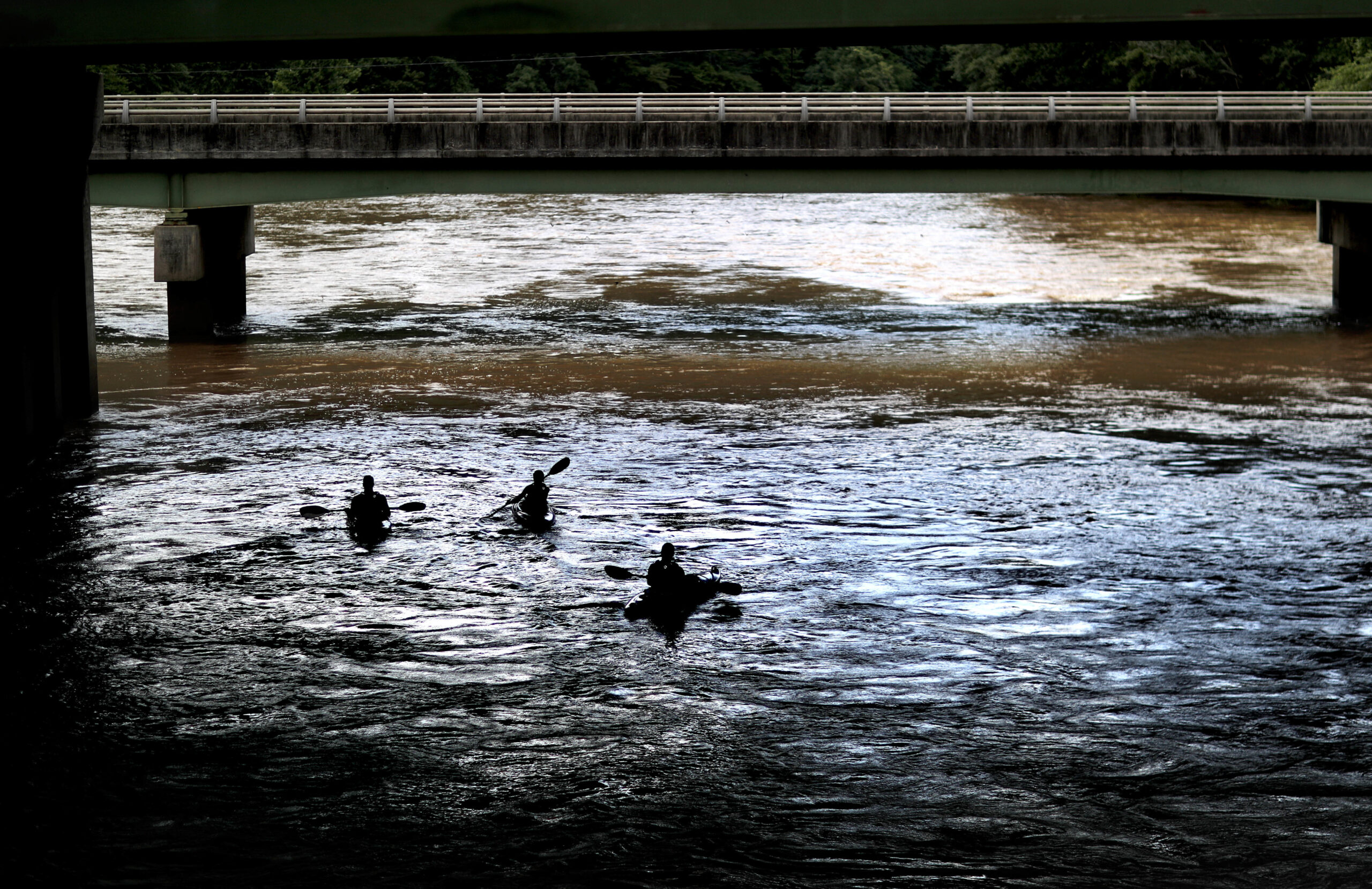New, Relatively Quick Timeline Laid Out For Next Round Of Supreme Court Water Wars Case

This Supreme Court case, which began in 2013, is one battle in the water wars between Florida, Georgia and Alabama that have been going on for decades.
David Goldman / Associated Press
Georgia scored a procedural win on Wednesday in its years-long Supreme Court fight with Florida over water.
Judge Paul J. Kelly Jr., a federal judge in New Mexico who recently took over management of the case, said he does not want more evidence collected.
“Given the voluminous record in the case resulting from virtually unlimited discovery and a lengthy trial, additional discovery will only lengthen the proceedings, delay the outcome, and increase litigation costs,” he wrote.
That’s what Georgia wanted. In its brief, the state had argued the year-and-a-half long discovery process, resulting in 7.2 million pages of documents, plus a month-long trial, covered everything.
Florida had asked for more evidence gathering, in order to focus on Georgia’s water use since arguments in the case in 2016, and the implications of the U.S. Army Corps of Engineers’ new manual managing the rivers the states are fighting over.
In addition to rejecting the idea of more discovery, Kelly also laid out a relatively quick timeline for this round of the case, asking the states to answer a set of questions by the end of January. (And also asking them to do it relatively concisely, and in 13-point font.)
The list of questions gets to the core of the fight, and asks the states to be specific: in essence, how is Florida being harmed; is it Georgia’s fault; and can it be fixed by limiting Georgia’s water use.
This Supreme Court case, which began in 2013, is one battle in the water wars between Florida, Georgia and Alabama that have been going on for decades. In this case, Florida says South Georgia farmers use too much water from the Flint River, and that’s damaging its Apalachicola River. Atlanta’s water use from the Chattahoochee has become less of a focus in this case, though both the Chattahoochee and the Flint meet to form the Apalachicola.
In January of this year, the states argued in front of the U.S. Supreme Court, but the justices put off any final decision, instead asking for more information.
In cases like this, where one state is suing another, there is no lower court jurisdiction; they go straight to the Supreme Court. The justices name a special master to manage evidence and initial rounds of arguments.
Judge Kelly took over as special master in August. But he has help catching up on the massive amounts of evidence in the case. The previous special master’s law clerk has been appointed to be Kelly’s legal assistant. Joshua Dunlap had previously clerked for Kelly.







